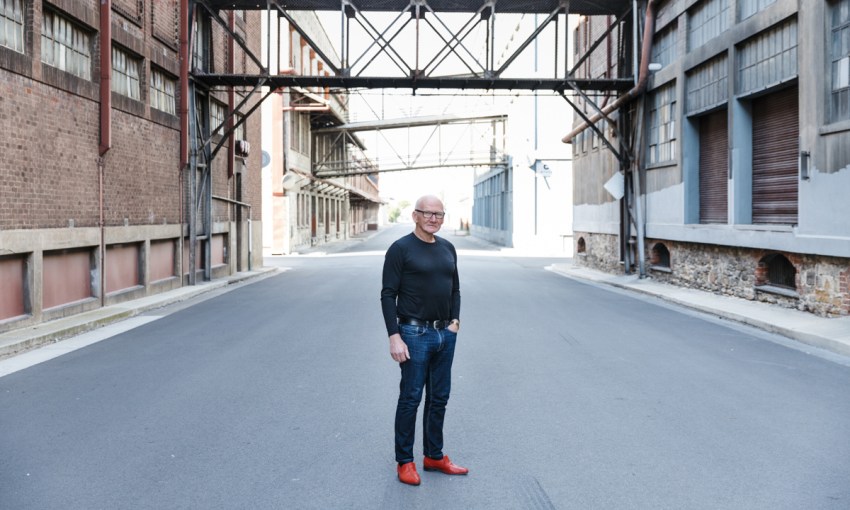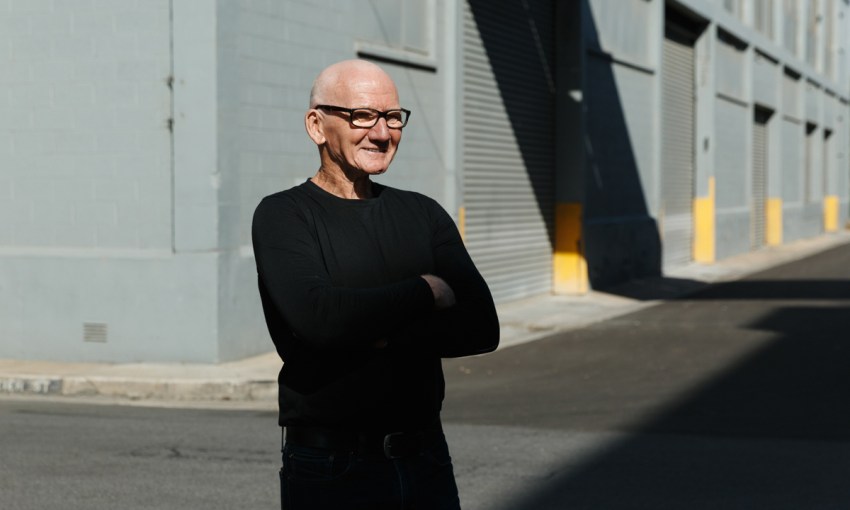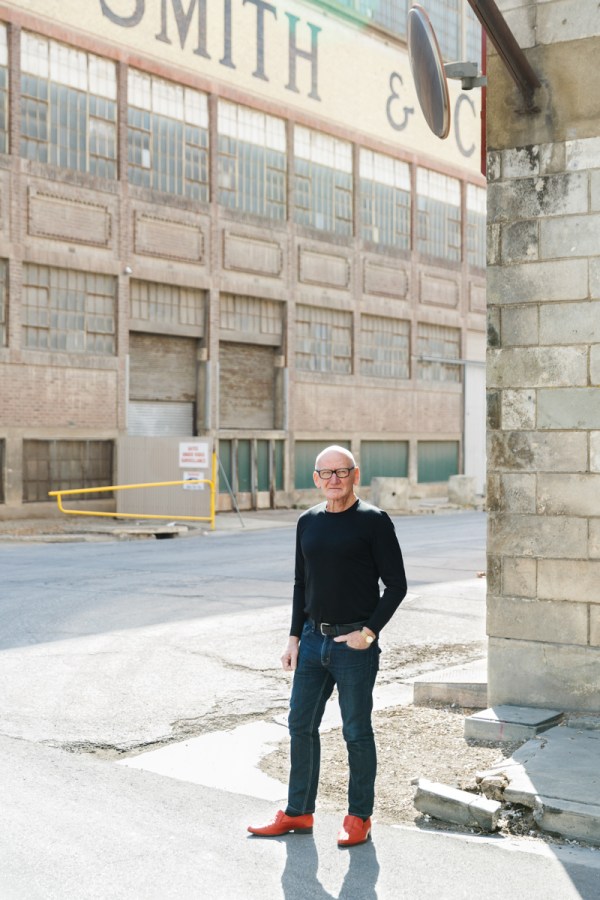Moving directly from a world of worksites and blue singlets to the realm of writer’s festivals and publishing deals, Geoff Goodfellow became that rare thing – an often-read poet.
How to be the people’s poet
“Poetry should be an act of communication,” says Geoff Goodfellow. And when he reads his poems aloud, that’s what poetry becomes.
Along with his many skills as a tradie, Geoff spent some time as a boxer. The fitness regime from that era is something he maintains to this day. He credits his recovery from cancer to his daily swimming and weights routine.
Geoff is soon to finish writing his debut novel – a memoir – which will hopefully be added to his published body of work.
Free from the oblique literary references, prosody and pentameters of high school students’ nightmares, Geoff’s verses achieve impact through the moments conjured in fine detail and the sharp observations made about the world.
His easy, to the point and vivid grasp of language was not always obvious – even to Geoff. From a childhood spent in the northern suburbs with an entertaining but alcoholic father to an early adulthood working as a steel fixer, Geoff’s youth was almost entirely devoid of the printed word.
“I’m Irish Catholic so I’m from a storytelling background,” says Geoff.
“My father was a great storyteller and encouraged us to tell stories when we were kids and we grew up with that notion that you had to be able to tell a story. We weren’t readers, there weren’t books in my house, but we grew up with a culture of people who went blah blah blah.”
It was only after a work injury saw Geoff bed-bound at the age of 32 that he picked up a book of poetry – one lying around that belonged to his son.
In it, he saw opportunity.
“When I hurt my back … I had three kids and I had to make a quid somehow. I knew I had to do something, I didn’t know what I was going to do but I knew I couldn’t do it through lifting anything heavy,” says Geoff.
“I read this book of poetry and I thought, ‘if I’m stuck in bed for the rest of my life this is something I can do in bed’.’
Successful careers in poetry are scarce, but it turned out Geoff was right – it was something he could do for the rest of his life.
The very first free verse poem he ever wrote was published in a local magazine after he ventured along for a reading at a Friendly Street Poet’s meeting. From there, not without a vast amount of hard work, he has continued to be regularly published in local, national and international periodicals and has released ten books of poetry – each of which has sold impressively.
Strung out in Semaphore by Geoff Goodfellow
In the streets of my suburb
two or three men grouped up
in suits & ties usually means
the demons are set to swoop
in the streets of my suburb –
most men if they’re lucky enough
to have a job wear a blue singlet
shorts & a hi-vis shirt
unless of course they’re fronting
the magistrates court
or turning up for another
bloody funeral
in the streets of my suburb
more young women than men
have decorated their bodies with
colourful tattoos
they stroll comfortably
among the old established locals
& exchange smiles
in the streets of my suburb
there are spreads of large hostels –
they are populated by manic depressives
schizophrenics
mood swingers
& others with acquired brain injuries
many adding colour
& some giving voice to anyone
who might listen
on the boulevard of broken dreams
in the streets of my suburb
poverty & affluence –
sickness & good health
surround you
& at the roadside cafes
on Semaphore Road
AFL footballers sip lattes
while metres away bin jockeys
gouge for refundables
& just around the corner
a low hum buzzes
off the high tension wires
strung out –
on Military Road.
His ability to carve out a place as a poet of note comes down to his desire to say things that people are interested in hearing, says Geoff. Writing specifically about the Australian working class experience, he has been able to reach audiences more often associated with iced coffee than volumes of verse.
“I’m not writing for an academic audience, I’m writing for people who might be next door [at the construction site near Geoff’s home] now, working as steel fixers and concrete pump attendants,” he says.
“I’m writing for ordinary, everyday people who have reasonably intelligent conversations. They might not have a Bachelor of Arts or a Masters or whatever, but they have opinions on things. I write about things in order to stimulate people to think – not to tell people how to live but to give ideas on what I think is a fair thing so people can come to their own conclusion.”
Drawing on his own life and those of people around him as inspiration, Geoff has become prolific.
“Poetry is around you all the time – it’s just whether you pick it up and run with it,” he says.
“I read a lot, writing is about reading and you can’t be a writer without being a reader. A lot of kids these days want to be writers but they don’t want to read anyone but themselves. If I find myself not writing anything, I’ll start reading and I’ll get back into it.”
Geoff’s survival as a poet has been aided by his interest in taking poetry out of its traditional sphere. He regularly runs poetry workshops in jails and youth detention centres, and also travels to schools for readings and teaching stints.
In his 60s now, and post a battle with cancer that threatened to take his life, Geoff seems unlikely to run out of things to write about, or the will to write about them. If we’re lucky, his voice will continue to explain Australia to itself and to the world for years to come.








